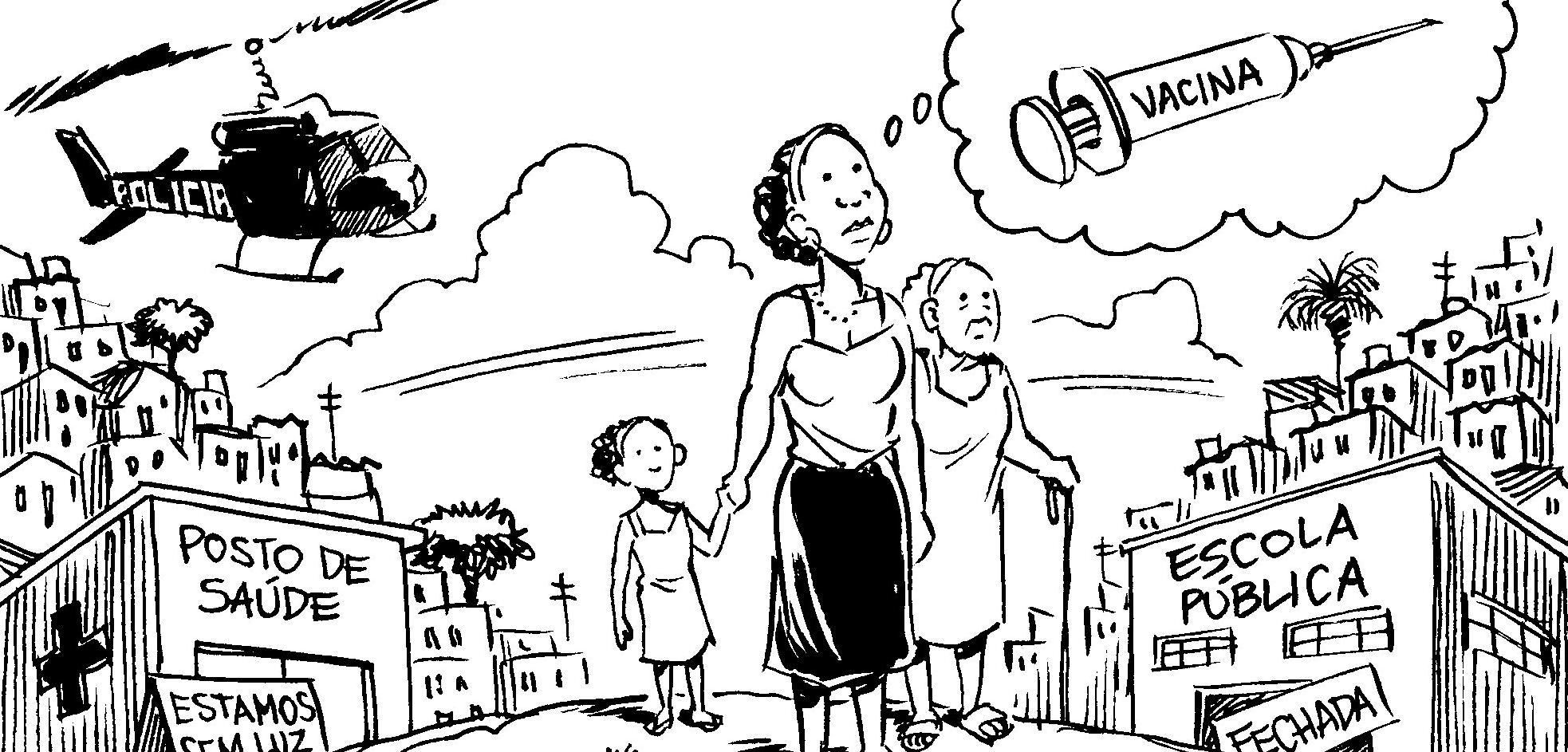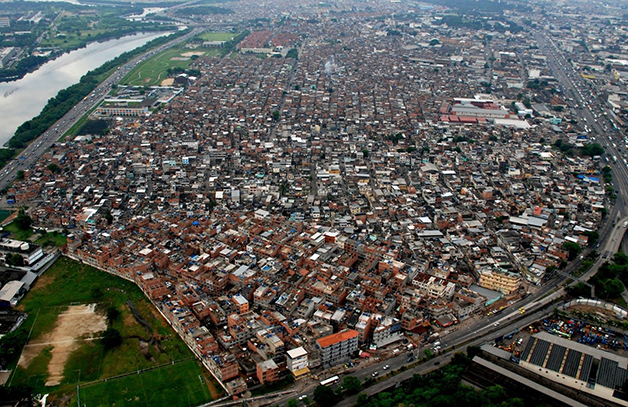RIO DE JANEIRO, BRAZIL – Hope has taken hold of Maré. The largest complex of favelas in Rio de Janeiro had this Thursday, July 29, its first day of mass vaccination against Covid-19, a process never seen before in a favela community of this size in Brazil, where overcrowding coexisted with poverty and violence.
“This vaccine is going to change everything. (…) Without the vaccination, it would be the end for us, with it, we have hope,” said Mariana, a 19-year-old who works as a waitress.
The vaccination, which will be extended until August 1, is part of a study to examine the direct and indirect effects of mass vaccination in this sprawling complex, home to 16 favelas and 140,000 people.

To achieve this goal, 1,000 professionals will be distributed in health centers, schools, and other sites in Maré. More than 140 locations were adapted to immunize 31,000 people between 18 and 34 years of age.
All of them will receive the vaccine from the AstraZeneca laboratory, produced in Brazil by the Oswaldo Cruz Foundation (Fiocruz), the main medical research center in Latin America.
The initiative results from a social mobilization that began a year ago to stop the pandemic in this community and in which the NGO Redes da Maré, the Municipal Health Secretariat, and Fiocruz (the entity leading the research) worked shoulder to shoulder.
According to the experts, the effectiveness of mass vaccination will be analyzed based on the peculiarities of Maré, where a majority of the population is under 30 years of age (51%), taking into account that some of its inhabitants are already immunized or are waiting for their second dose.
“We have never had a vaccination impact in a community with these characteristics. Maré is an agitated, riotous area; it is an area where at the beginning of the pandemic mortality was double that of Rio de Janeiro, which was the highest among Brazil’s capitals,” Fernando Bozza, Fiocruz researcher and coordinator of the study in Maré, told Efe.
Since the pandemic arrived in the country at the beginning of 2020, 317 people died from the virus in that community, and some 6,800 were infected.
The study, which will last six months and will be divided into several stages, seeks to know the direct and indirect effects of vaccination, with follow-up of massively immunized people and those who are not, to know if the application of the antigen in adults inhibits the infection of minors.
A JOB FOR EVERYONE
In the battle against covid, Maré’s best weapon has been social mobilization, a work promoted for 20 years by the NGO Redes da Maré, which before the pandemic was focused on lowering the rates of violence, supporting mothers who are heads of households, and promoting the skills of the youngest.
With the arrival of the coronavirus, the goal was to save lives, and Maré succeeded. In one year, it managed to reduce deaths from covid-19 by 88%, thanks to the cooperation of its inhabitants, the support of other NGOs and the authorities, and a continuous and intense communication effort through social networks, local media, and word-of-mouth.

“The support of the inhabitants has been enormous. (…) People understood that, collectively, we could solve these problems we are experiencing. The receptivity has been excellent,” Eliana Silva, director of Redes da Maré, told Efe.
THE REALITY OF THE FAVELAS
Rio de Janeiro has about seven million inhabitants, 22% of whom live in favelas. The overcrowding of dwellings and the coexistence with shootings, as well as the tacit acceptance of criminal gangs that exercise dominion in the absence of the State, are part of their daily lives.
Maré is no stranger to this reality. Its population lives in an area of 4.5 square kilometers, a squeeze also felt in their wallets and purses. The pandemic brought hunger and death and forced many young people and adolescents to leave in search of daily sustenance. Others ended up joining drug gangs or militias with the dream of earning “easy” money.
Source: efe

